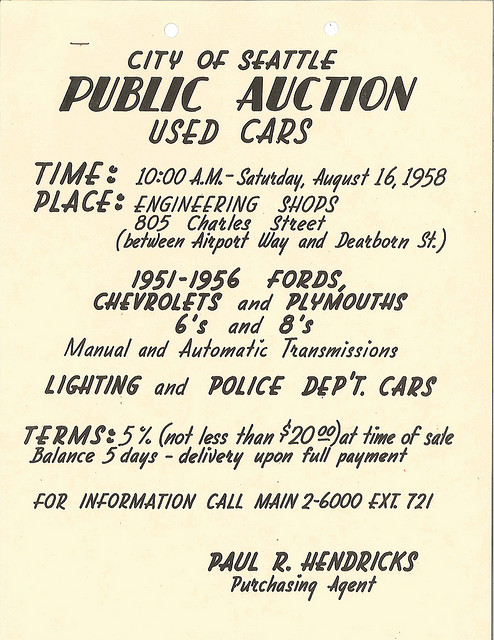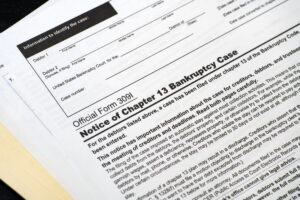I spent this last Saturday at an auction held in an industrial part of Denver, just west of downtown. The auction was held in a small metal warehouse. On the asphalt outside the warehouse, behind the high chain link fence, were several vehicles. There was a 1960 Ford Thunderbird that looked like it might have been worth something, but for the most part, the vehicles were old and would likely need some mechanical attention. Inside the warehouse was an odd assortment of items. I saw a collection of swords, surveyor’s equipment, remote control helicopters, coins and paper currency. I didn’t stay long once the auction started. There was a whole warehouse of stuff, plus the parking lot. It was going to take the whole day to get through everything.
I’ve always been a fan of auctions, but I didn’t go to this one to buy anything. This is the auction for property that is turned over to bankruptcy trustees. I wanted to see what kind of property gets turned over for sale.
Remember, only a certain amount and kind of property is protected when you file bankruptcy. In my experience, most people who file Chapter 7 bankruptcy are able to keep most, if not all, of their personal property or real estate. But not everything is protected (swords and remote control helicopters, for example). If you have any property that isn’t protected (and it’s my job to let you know what isn’t protected before we file your petition), you have a few options: you can sell the property before we file the case and spend the money on necessities like health care or car maintenance; you can buy the property from the trustee after we file your petition, or you can turn it over to the trustee who will send it over to the auction house. After the trustee pays the auctioneer and takes his cut, he’ll distribute the rest of what he makes on the sale to your creditors.
Another option would be to go to the trustee’s auction. From what I could tell, these items were being sold for next to nothing. It’s likely you’ll pay less than what the trustee would want you to pay him. Of course, if someone at the auction wants the property more than you, this strategy could backfire.
If you have any questions about the bankruptcy process in Colorado and what happens to your property when you file bankruptcy, we hope you’ll come in for a free, no-obligation consultation with an experienced bankruptcy attorney. You can schedule an appointment by calling 303.331.3403 or by using our online scheduling system.



